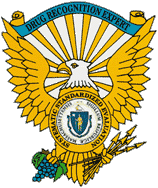WHAT IS D.I.T.H.C.P.?
Drug Impairment Training for Health Care Professionals (DITHCP) is a program developed to train Emergency Medical Service (EMS) Professionals
about drug impairment, drug recognition and drug abuse in the school setting.
D.I.T.E.P. also trains educational professionals how to deal with students that may be impaired by drugs.
DITHCP classes will be coming in the fall of 2024!
Program History
It is well known that drug use and abuse is rampant in not only the United States, but many other countries. Drug use and abuse affects all facets of life, including the professionals of our health care system. Daily, health care workers must deal with people who are abusing drugs, and who are impaired by a variety of drugs.
These drugs may be in the form of licit medicinal drugs, or illicit street drugs.
Although there are some drugs that can be easily recognized (heroin overdose, for example), many can not, especially the newer “designer drugs”. Impairment and overdose of these drugs present a unique problem for all health care providers, especially emergency medical service professionals.
There are many signs and symptoms associated with drug impairment (and abuse) that are not easily recognized by heath care professionals. This can present a myriad of problems, not only for the emergency professionals on the street, but also for the emergency staff in hospitals, clinics and trauma centers.
This four-hour block of instruction is designed to provide health care professionals with the tools to recognize clinical and psychophysical symptomology associated with drug impairment, and potential treatments for these problems.
Although EMS professionals use clinical signs and symptoms in the field, and in the hospital, most do not recognize certain signs as being associated with drug impairment and/or overdose. By learning the drug symptomology, and the methods to detect those signs and symptoms, EMS professionals will gain a better understanding of drug impairment/overdose indicators, and be better able to recognize these.
Further, simple diagnostic exams not commonly used in the field and in the hospitals will assist the EMS professional in being better able to determine if drugs are involved, and possible which drug category (s) is/are involved.
For some drug overdoses; GHB as an example; there are no “standard treatment protocols”, other than basic life support. There are some ways to help these individuals in the field, one in particular being the recognition of the drug and or drugs taken, the symptomology, street slang and paraphernalia.
This course of study is partly designed from the National Highway Traffic Safety Administration’s (NHTSA) and International Association of Chiefs of Police’s (IACP) DRUG EVALUATION and CLASSIFICATION PROGRAM.
Also, several studies from a variety of health care institutions and professionals have been reviewed and incorporated.
This course has previously been submitted and approved for OEMS Continuing Education Credits.
NOTE: The possible “treatments” mentioned in this block of instruction are to assist the EMS professional. This course is NOT intended to change current national and/or state EMS protocols. Participants are informed prior to the instruction that in no way should they attempt to change any standard protocols.
This course of instruction will be taught only be Nationally Certified Drug Recognition Experts/Instructors who are also certified EMTs/Paramedics/Nurses.

Course Content:
The DITHCP training is an interactive four hour contining education EMS class. It is intended for ANYONE in Emergency Medical Services interested in this type of training.
Introduction and Overview
Drug Use vs. Drug Abuse vs. Drug Impairment
Seven Broad Categories of Impairable Drugs Overview
Polydrug Use
Novel Psychoactive Substances
Current Drug Trends – Local & National
Signs and Symptoms
Eye Indicators: Nystagmus, Pupil Size, Pupillary Reaction to Light, Convergence, Rebound Dilation
Vital Signs
General Indicators
Drug Paraphernalia / Drug Slang
Determining Impairment
Possible Interventions/Treatments
Scenarios
Medical Complications That Can Emulate Drug Impairment
Healthcare Provider Safety
Drug Recognition Expert Program
Questions & Answers
To learn more about DITHCP, please contact the state Drug Evaluation and Classification Program coordinator;
Sgt. Don Decker (ret.)
Nahant Police Dept.
781-581-1212
djdecker57@verizon.net

